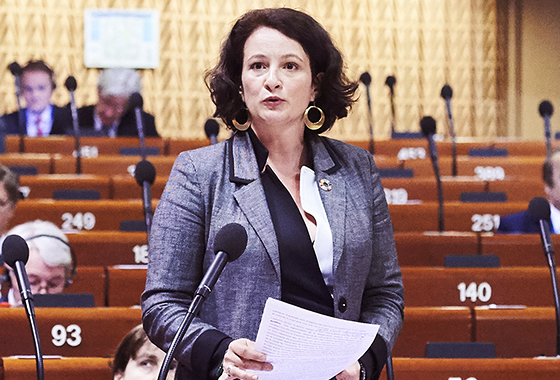A PACE committee has approved a wide-ranging report making a series of ethical, legal and practical recommendations for the safe and fair worldwide deployment of vaccines against Covid-19, and to encourage their uptake in the face of “vaccine hesitancy”.
“Scientists have done a remarkable job in record time. It is now for governments to act,” said PACE’s Committee on Social Affairs, Health and Sustainable Development, approving a report by Jennifer De Temmerman (France, ALDE) during a meeting by video-conference today.
The new vaccines should be a “global public good”, and “immunisation must be available to everyone, everywhere”, the parliamentarians declared. Council of Europe member States should now prepare immunisation strategies which “allocate doses in an ethical and equitable way”, while promoting equity in access between countries.
With supplies initially short, the committee said bioethicists and economists largely agreed that priority should be given to persons over 65 years old and persons under 65 with underlying health conditions […], health-care workers, people who work in essential critical infrastructure and in public services, in particular in social services, public transport, law enforcement, and schools, as well as those who work in retail.
Read also
To ensure high uptake, governments should act swiftly to “counter misinformation, disinformation and hesitancy” regarding Covid-19 vaccines, be transparent about their safety and possible side effects, reach out to marginalised groups, and engage with local communities.
The committee also warned that the speed of development of these vaccines could undermine trust in them. It thus made specific recommendations with respect to ensuring the monitoring of the long-term effects of the Covid-19 vaccines and their safety. Failure to distribute vaccines widely could render them ineffective: “Vaccine hesitancy and vaccine nationalism have the capacity to derail the so-far surprisingly fast and successful Covid-19 vaccine effort, by allowing the virus to mutate.”
The report is due to be debated by the full Assembly on Wednesday 27 January 2021 during a “hybrid” plenary session, with some members attending in person and some participating online.
PACE




























































